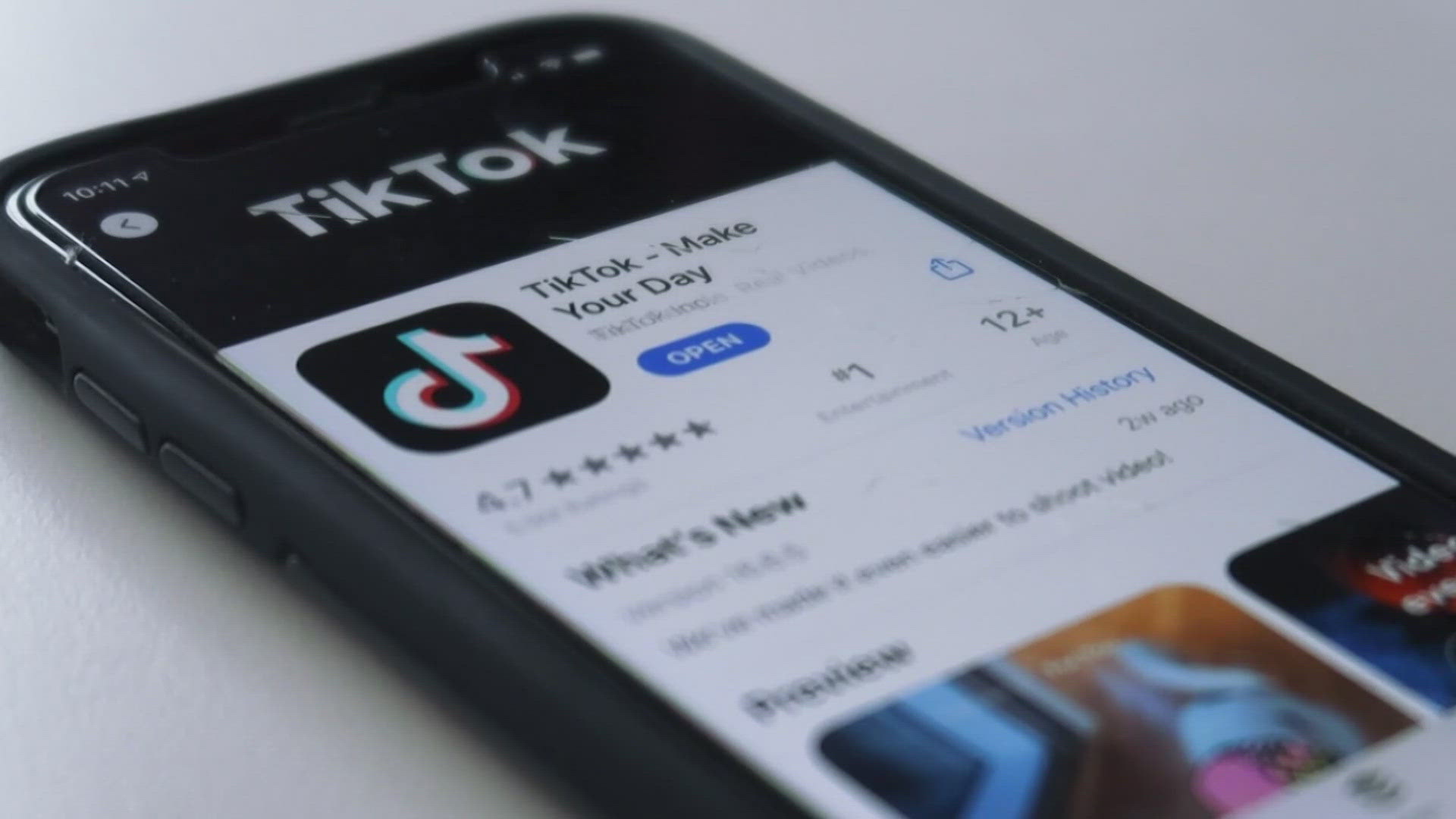KNOXVILLE, Tenn. — TikTok could be banned in the next year, after President Joe Biden signed legislation that would force TikTok's Chinese owner, ByteDance, to sell its interest in the platform or face a ban.
Shou Chew, the TikTok CEO, said the company plans to fight the decision in court.
"It's actually ironic because the freedom of expression on TikTok reflects the same American values that make the United States a beacon of freedom," said Chew said in a video posted to the platform. "TikTok gives everyday Americans a powerful way to be seen and heard. And that's why so many people have made TikTok part of their daily lives. Rest assured, we aren't going anywhere. We are confident and we will keep fighting for your rights in the courts."
Karen Freburg, a strategic communications professor at the University of Louisville, said the new law potentially banning TikTok is not. She said people in the industry discussed it for a while, and said that conversations began in around 2020 about banning TikTok.
"I do feel that this wasn't necessarily a surprise, I think it's just been kind of a slow burn since the conversations that began back in 2020 about TikTok. I think this latest push has been, I would say, more rapid and more kind of like decisive versus the uncertainty like, 'Well, is it bad? Is it not? Are we going to be keeping our data here? Or are we not?'" she said.
She says the app isn't just known for teenagers doing dances anymore. She said it's become a form of entertainment and a platform for people to tell stories, helping build communities like "Book Tok" and "Cleaning Tok."
"At the end of the day, humans were kind of, you know, what I've shared with students and colleagues in my own profession, that platforms may change, but human behavior doesn't," said Freburg. "But you have these communities, you have these individuals that have the ability to share knowledge, educate and kind of engage with others across the different areas of the world."
Kenzie Greene is a junior at the University of Tennessee. She said she also makes videos on the platform.
"I do a lot of informational videos, like tips for upcoming college students," said Greene. "I do a lot of like, lifestyle content, kind of day-in-the-life things. I hop in little trends and do things like that."
She said a ban would be disappointing, but TikTok isn't her only source of income.
"I definitely would be upset if it were banned. But I do understand that may have to happen. And I trust our lawmakers to make the appropriate decisions with that. And I would be totally flexible with jumping onto another platform and doing kind of what I'm doing now, just in other ways. It wouldn't be the end of the world for me, especially because my priorities — I am a student, and I'm pursuing an education," said Greene.
And Freburg agrees. She said content creators and influencers should be spreading their revenue sources across several different social media platforms.
"My rule of thumb is never put all of your eggs in one basket for social media, because you just never know what will happen," said Freburg. "But that's going to be the kind of the decisive question. So I think what we're really seeing right now for brands, creators and influencers and everyone on board is, 'Okay, this is kind of in the works. We want to be prepared and not be caught off guard and surprised.'"
According to Matthew Pittman, an assistant professor at UT's College of Communication and Information and one of Kenzie's professors, the potential TikTok ban affects more than just content creators. He is also the director of the Adam Brown Social Media Command Center, and said it is the fastest-growing social media app around the world.
He said there is between $8 billion and $15 billion of advertising revenue from TikTok, moving instead to platforms like Instagram or YouTube Shorts.
"So right now, Google and Meta are very excited about the idea of a TikTok ban," he said.
Freburg said other platforms are taking note of what TikTok is doing now, and seeing how the company caters to its users. She said they have taken tips on how to focus algorithms on individual users, changing how content reaches users' feeds on their own platforms.
"I think that it really has kind of shaped the industry into where we're seeing right now," said Freburg.
Pittman said TikTok being banned could have a huge impact.
"Even if you're not a content creator, the ban would affect you because not only does Gen Z use TikTok as their search algorithm to figure out how to change the oil in their car or bake a loaf of banana bread, but the algorithm is more fair or democratic," said Pittman. "So whether you have a million followers or ten followers, no matter who you are, when you make a video, it'll show it to 100 people and based on how they react either show it to more people or not. So you're more likely to see quality content from somebody that doesn't have a large following if it's good and useful, compared to Instagram, where they only put out the stuff from people that have millions of followers."

